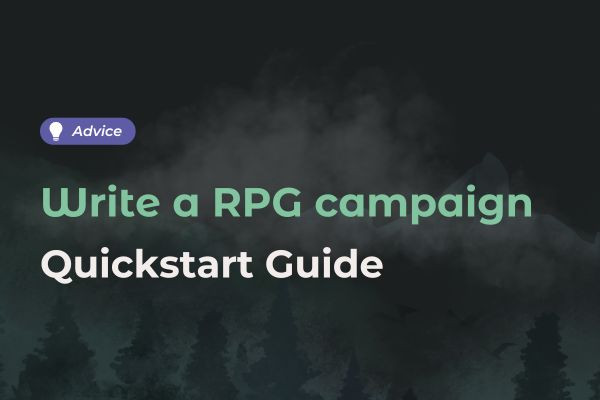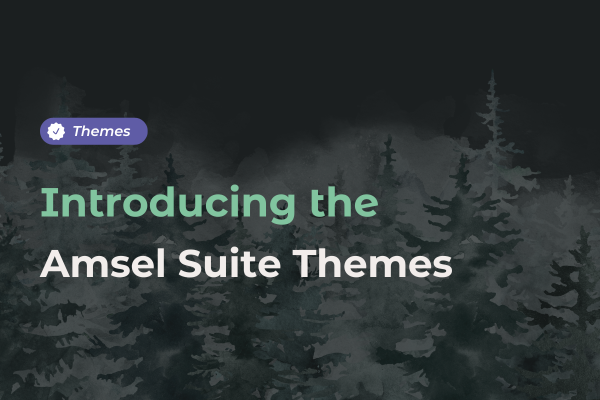
How to write your first RPG campaign?

Want to start writing your first role-playing scenario ? We're here to help! Here's how to start writing your first campaign the easy way.
Imagining an immersive universe
Before you even define the quest and missions your players will face, you first need to think about the universe in which your role-playing game will be set . There are several ways to do so.
Create your own universe
You can, of course, start from scratch and create your own universe. Even though this is a time-consuming task, it's the best way to have a fully customized world .
If you want to choose this solution, we recommend you take a look at our article on how to create your first world. You'll find plenty of advice on how to get started.
Use what already exists
To save time and ensure the coherence of the elements in your world, you can use a world you already know . This can put your mind at rest and make it easier for players to get started.
If you're into role-playing games , for example, you could use the worlds of Dungeons & Dragons, Cats, Cyberpunk, The Witcher or Call of Cthulhu .
Set up a common thread
If you have several quest ideas in mind, we advise you to start by choosing a single main mission that will serve as your common thread and final objective .
You can then graft the other quests and storylines you've imagined into your scenario in a linear or non-linear way.
Think about the non-player characters
During their adventures, players will meet many characters . These will play a crucial role, as their characters and attitude will influence the players' perceptions .
For example, if the players meet a traveler who offers to help them. Will they follow him and trust him? Or will they be suspicious and flee?
Each choice can be decisive, and will influence your story in one way or another. So don't forget to develop your non-player characters and their impact on your campaign.
To facilitate the creation of your world, we recommend that you create your characters with Lore, our worldbuilding software. This will enable you to add all the details you want and create links with all your pages . Discover how to create template.
Write what you already know
To avoid writer's block, start by writing down all your ideas. Do you have an idea for a chapter, but no scenes inside? No problem! Just write down the name of the chapter, so you can come back to it later.
If you're using Tome, our role-playing writing software, you can create your chapters directly and enter your big ideas in each Tale Summary.
Once you've built up an overall structure, you can return to your chapters to develop each idea in scene form.
Add side quests
Once you've written your basic campaign, you can add side quests to it. To create these missions, let your imagination run wild!
One of our Amsel Suite users shared with us one of the side quests he has played with his table. Check out his story:
"Once, my players found themselves in front of a magic door with a riddle. They tried everything: dice rolls, roleplay, detailed descriptions, even diagrams on paper... but nothing helped.
In truth, the solution they were looking for was simple: they literally had to dance in front of the door - and in real life, in the living room!
After 30 minutes of brainstorming, absurd attempts and giggles, one player timidly suggested: “What if... we danced for real?”
They took the plunge, the door opened and the memory remained. Resisting the urge to give away the solution too quickly can really make for some magical and completely unexpected moments."
Be ready to improvise
No matter how many paths you prepare, your players will almost never stick exactly to your plans—and that’s part of what makes roleplaying so great: anything can happen!
To keep things running smoothly, focus on building a solid foundation of consistent world details. If a player asks an NPC an unexpected question, you'll be able to answer naturally if you understand that NPC’s motivations and what they know.
You’ll find it much easier to improvise a surprise visit to a city if you’ve thought through its culture or political setup; to spin up a quest in a forest if you know the local legends; or to drop a helpful clue when the party is stuck if you’re confident in the details of your plot.
Choose a game system
As you write your role-playing campaign, you may soon realize that player choices need to be structured. That's where the game system comes in.
How will player choices be structured in your campaign? Do players have dice to roll? How many and of what value?
All these questions need to be asked before launching your campaign. They will help determine whether the players have succeeded and can continue their adventures, or whether they need to turn back.
Optimize your scenario over time
If your campaign scenario isn't perfect, that's okay! You'll always have the chance to adapt it at the end of your first session.
Thanks to Tome's integrated notes system, you can also send yourself private messages during your session, which you can then use to modify your campaign once it's finished.
Nevertheless, we recommend that you carry out a zero session with your players to determine their expectations and introduce your world, as well as to give them the first details of their quest!
Writing your first role-playing campaign is a lot of work, but with the right tools, you'll get the job done easily.





